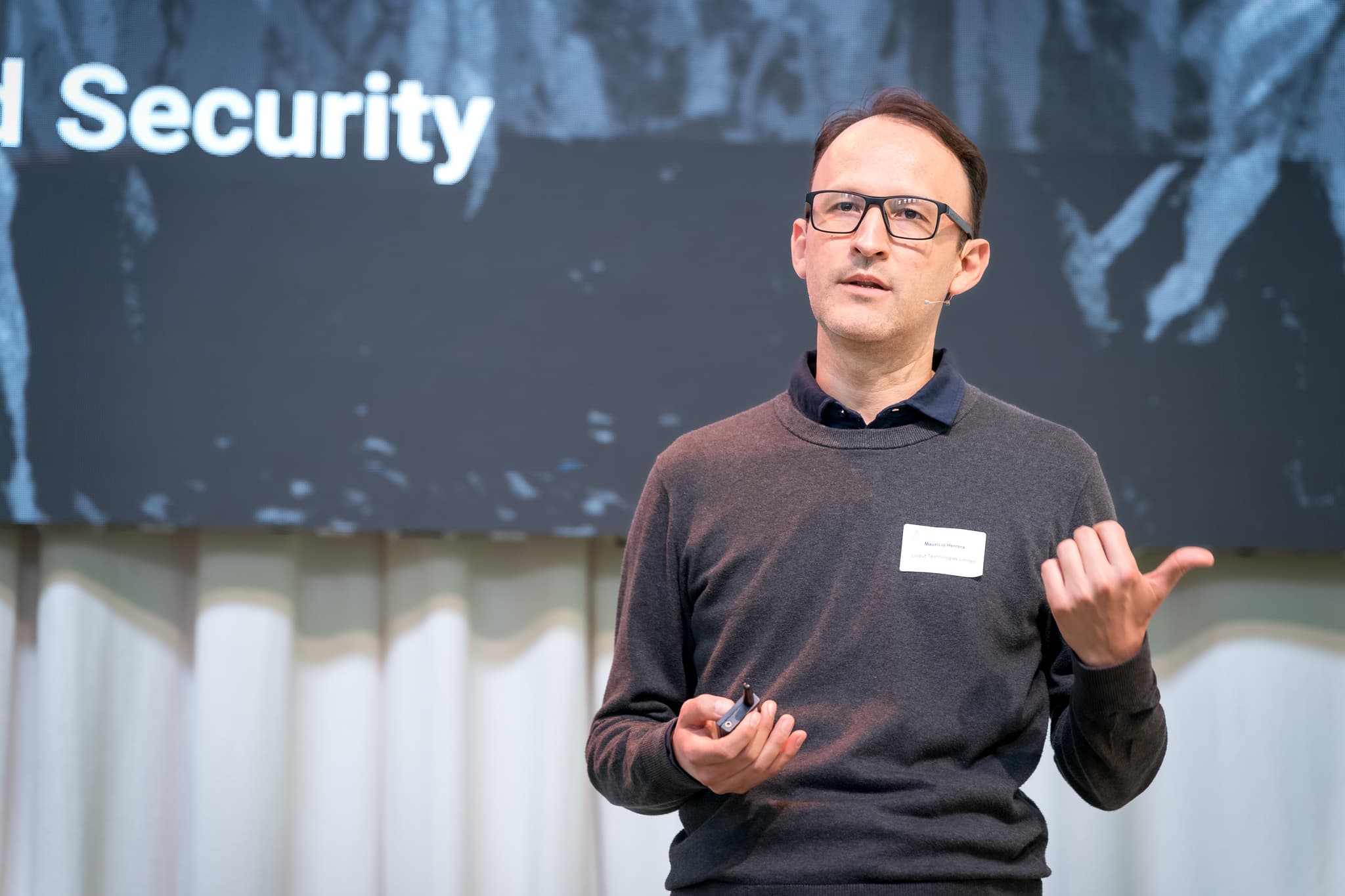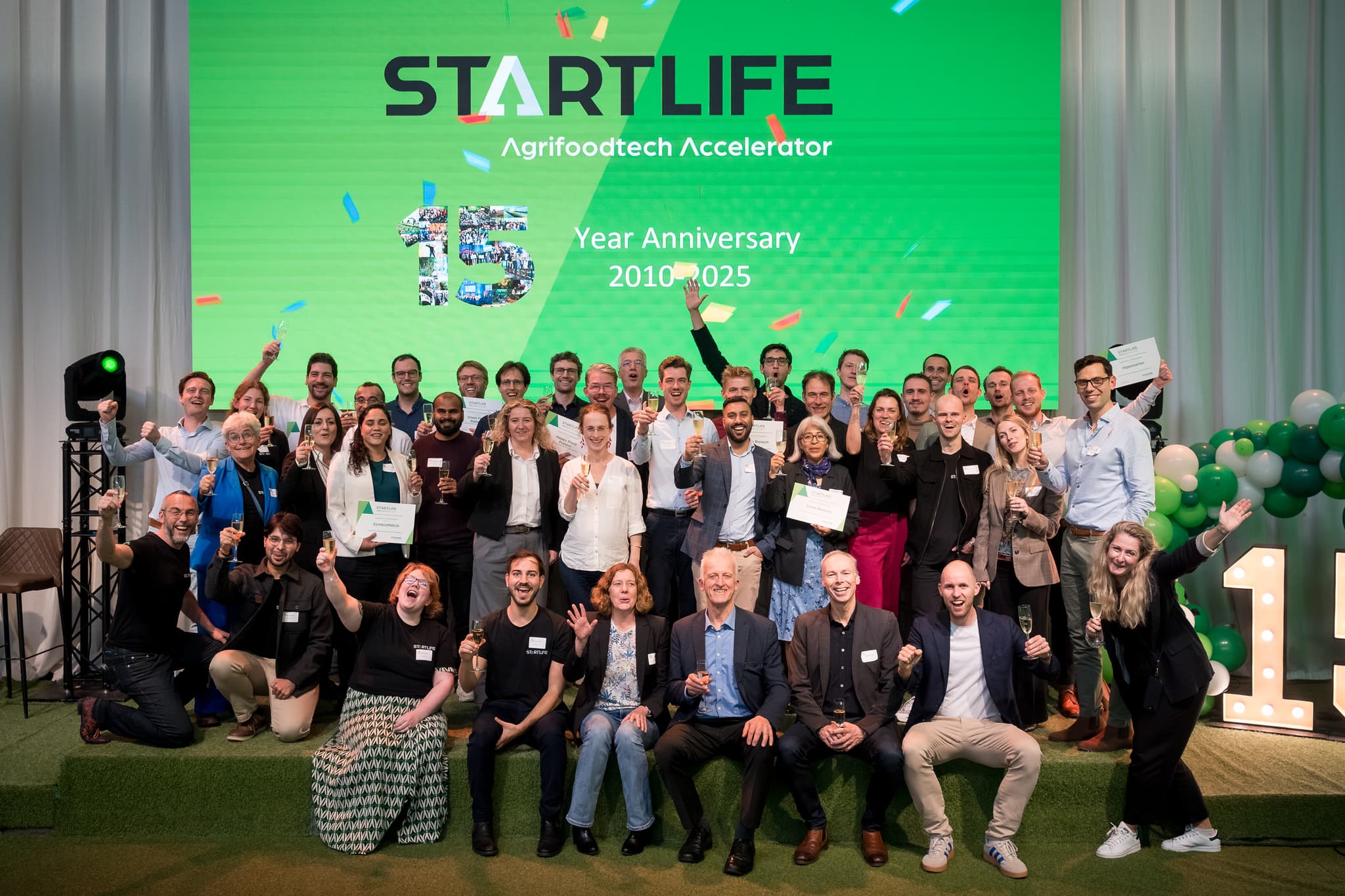Lilliput Technologies: Keeping crops cool in a warming world
With its sprayable “LilyShield” biocoating, the startup helps farmers fight heat stress and protect food security
Published on November 24, 2025

Lilliput Technologies
Bart, co-founder of Media52 and Professor of Journalism oversees IO+, events, and Laio. A journalist at heart, he keeps writing as many stories as possible.
At StartLife’s 15th anniversary celebration in Ede, eleven pioneering agrifoodtech startups took the stage to show how science and entrepreneurship can reshape the future of food. From smarter biostimulants and energy-efficient farming robots to next-generation proteins and nutrient innovations, each team presented a bold solution to one of the world’s most urgent challenges: feeding a growing population within planetary limits. In this IO+ series, we highlight their stories; not just the technologies they’re building, but also their vision and the advice they received from the expert panels. Today, we focus on Lilliput Technologies.
Mauricio Herrera's message is as urgent as it is hopeful. “We are determined to tackle heat stress,” he said as he stepped up to the stage at StartLife’s Demo Day. “To increase productivity and food security, in spite of global warming.”
The audience of investors, founders, and agrifood experts listened closely. In a world where temperature records are broken every year, farmers face mounting pressure from heatwaves that devastate yields and dry up soils. Herrera didn’t need to dramatize the problem. “Heat stress is affecting life everywhere,” he said. “Humans, animals, and plants.”
Plants, he explained, have evolved ways to cool themselves, but those natural mechanisms are reaching their limit. “They’re no longer sufficient, and they will not be sufficient under the upcoming climatic circumstances.”
The hidden cost of heat
As temperatures rise, farmers have been forced to compensate by using more water, more fertilizers, and more energy, only to find that those inputs often make things worse. “We’ve been tackling the symptoms and not the causes,” Herrera said. “The result is increasing vulnerability to pests, pathogens, and operational risks. Productivity is falling everywhere.”
The numbers are stark: according to Lilliput’s estimates, 70% of global agricultural production will be under threat within 20 years due to heat stress. “That’s not just an agricultural problem,” Herrera warned. “It’s a food security crisis.”
A shield for plants
The company’s response is LilyShield, a sprayable biocoating that acts as a protective layer for crops. “It’s the first of its kind,” Herrera said proudly. “It regulates plant temperature, dissipates heat, and reflects harmful radiation, without interfering with photosynthesis.”
In trials, LilyShield has shown remarkable results: yield increases of up to 40%, water-use efficiency up by 60%, and temperature reductions between 3 and 15°C compared to untreated plants. “It’s safe, user-friendly, and cost-effective,” Herrera emphasized.
The company’s first focus crop is pineapple, chosen for both its high economic value and its sensitivity to temperature. “We’ve shown that we can increase farmers’ income by over $3,000 per hectare per year,” Herrera said. “And that’s just the beginning.”
From pineapples to grapes and coffee
The market opportunity extends far beyond tropical fruit. “We already see strong demand for crops like wine grapes, berries, coffee, cacao, avocados, tea, and field vegetables,” Herrera said. “Anywhere heat stress is limiting productivity, that’s our playing field.”
Lilliput Technologies plans to file a full patent in February, scale up manufacturing capacity, and launch commercial trials worldwide. “If you want to innovate in climate adaptation for agriculture and increase food security and productivity despite climate change, talk to us,” he said, inviting potential partners and investors to the company’s booth.
Convincing investors without scaring them
After his pitch, Herrera posed a practical question to the panel. “When we talk to investors about our R&D challenges,” he asked, “how do we do that without scaring them off?”
The panelists smiled knowingly; maybe every founder in the room had felt that tension. “If you’re talking to agtech investors,” one expert said, “they’ll understand. Real agtech investors know that early-stage companies face long development cycles and technical hurdles. You won’t scare them by being honest; they expect it.”
Another advised Herrera to emphasize potential rather than problems. “Show the scale of what you can solve,” he said. “Your technology tackles a global threat. Combine your early data with a clear vision of the impact, that’s what excites people.”
A third panelist added a more operational perspective. “Lay out your journey and your assumptions clearly. What’s your roadmap from pilot to scale? What investment do you need for each step? And what happens if your assumptions change? Showing that kind of strategic thinking builds confidence.”
Herrera nodded. “That’s good advice,” he said. “We’re already mapping that path, from our pineapple pilot to the next crops and regions.”
Circular by design
When a member of the audience asked about LilyShield’s environmental footprint, Herrera’s answer was crisp. “It’s circular and biodegradable,” he said. “The biopolymer is made from polysaccharides. Under realistic conditions, it breaks down in 60 to 90 days.”
Durability, he explained, depends on the crop. “For pineapple, you need to spray weekly, just like farmers already do with other treatments. For crops like coffee or grapes, we’re targeting 30 days between applications, to fit existing practices.”
That flexibility, combined with low toxicity and full biodegradability, gives LilyShield an edge in a market hungry for sustainable solutions.
Hope under pressure
Lilliput’s story isn’t just about agricultural innovation; it’s about adaptation, the kind of practical resilience farmers will need to survive a hotter, harsher world. “Heat stress is already here,” Herrera said afterward. “We can’t control the weather, but we can help plants cope with it. That’s how we protect both the farmer and the future.”
For a world struggling to balance food production and planetary limits, LilyShield may be exactly what its name suggests: not just a product, but a promise; a thin, shimmering layer of hope.

15 years Startlife
Read about all the startups that were part of StartLife’s 15th anniversary Demo Day.
